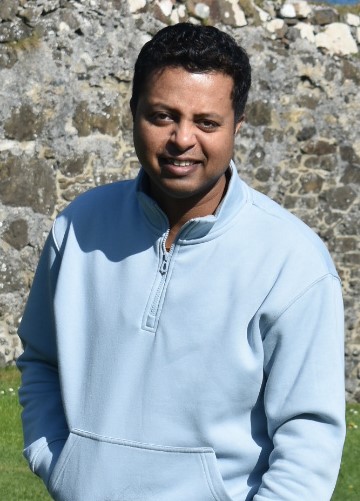
Dr Rajkumar Sarma is a Lecturer in Electronic and Electrical Engineering at the University of Galway, Ireland.
He previously worked as a Research Fellow at Lero – the Research Ireland research centre for software at the
University of Limerick. He completed his PhD at Lovely Professional University, Punjab, India, in June 2020.
Dr Sarma's research focuses on automated transistor-level and digital IC design, low-power design, FPGA
prototyping, and machine learning–driven EDA automation. At Lero, he contributed extensively to the Automatic
Design of Digital Circuits (ADDC) project, where he helped develop ML-based systems for autonomous hardware
generation. His work includes building a Grammatical Evolution–based HDL code generator and transistor-level
circuit generator in Cadence SKILL. He is currently a collaborator on Enterprise Ireland's Commercialisation
Fund project AutoCircuit, which aims to advance end-to-end automation for digital IC design.
He has strong expertise in Cadence design tools (Virtuoso, Assura, Genus, Innovus, JasperGold Superlint) and
FPGA development using AMD Xilinx ISE/Vivado on 7-series boards. Dr Sarma played a key role in achieving the
world's first ML-generated ASIC, validated on FPGA and fabricated using TSMC 65 nm technology. His
responsibilities included FPGA realization, SPI interfacing, synthesis, physical implementation, and
functional testing of silicon chips.
Dr Sarma has authored multiple publications in reputable journals and conferences, including Neural Computing
and Applications (NCAA), Algorithms, and CMC: Computers, Materials & Continua. He is also the author of four
books related to HDL, FPGA prototyping, and VLSI design. His research innovations have led to multiple patent
applications, including a granted patent on a Signed Floating-Point MAC Architecture by the Indian Patent
Office.
With more than 13 years of teaching and research experience, Dr Sarma has supervised numerous
postgraduate and undergraduate students, many of whom have progressed into roles within the IC design and
semiconductor industry. His teaching and research continue to advance automated EDA workflows,
energy-efficient architectures, and next-generation hardware design methodologies.